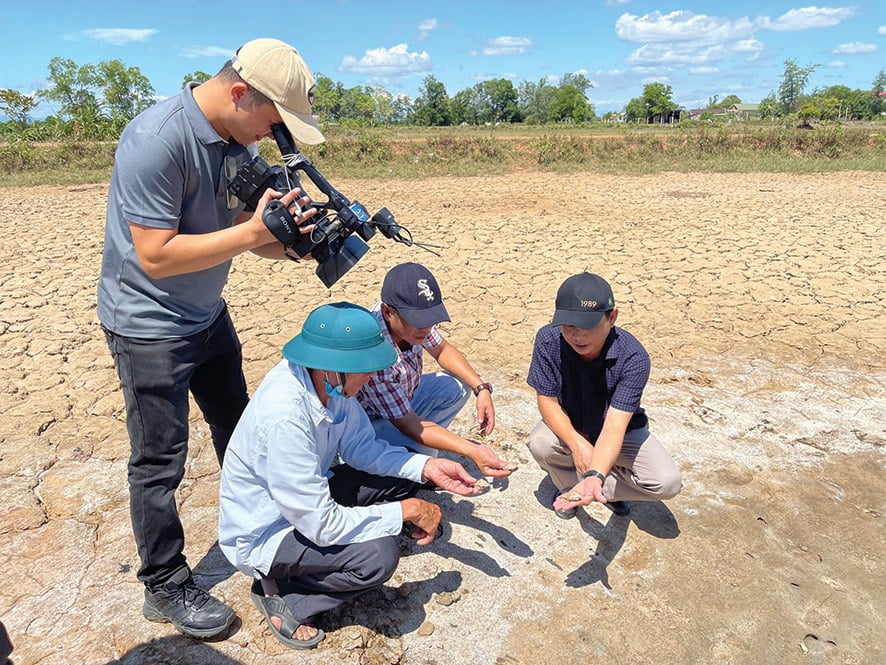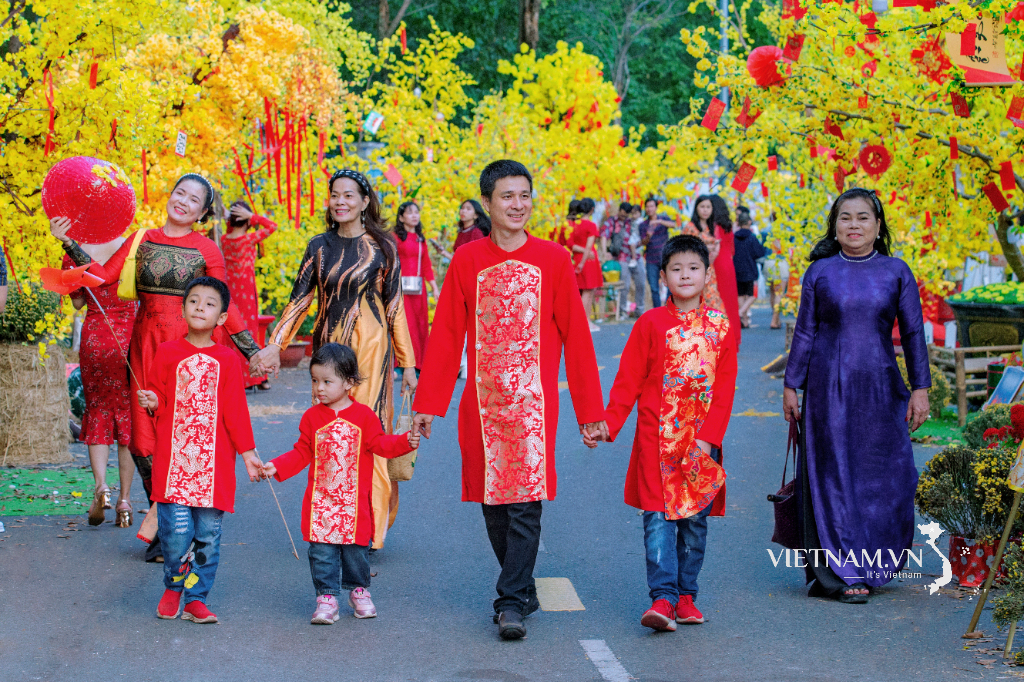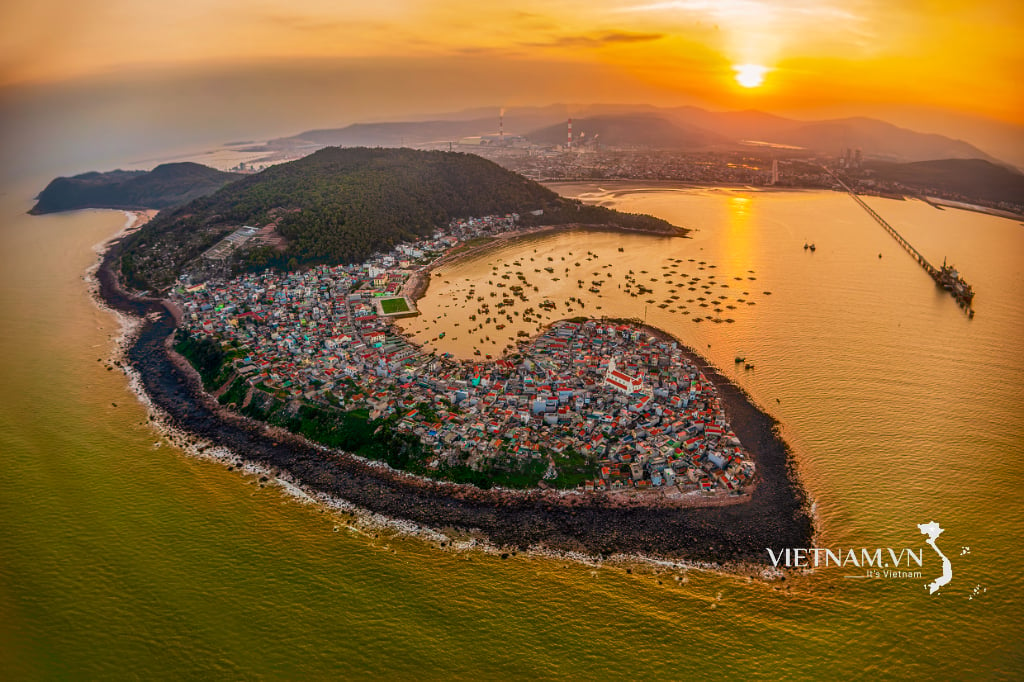Journalists working in the field during the drought season - Photo: Huy Quan
In July 1989, Quang Tri province was re-established, but it lacked many officials for its various departments and agencies... This was an opportunity for us to return to our hometown to work. At that time, transferring to the education sector was still difficult, so some people advised me to transfer to the Propaganda Department or the Quang Tri Newspaper (which were agencies still short of staff).
When I applied for a transfer to the newspaper, the management required applicants to have at least three articles published in central and local newspapers. Fortunately, although I studied at a teacher training college, I always enjoyed writing.
In my second year of university, I had an article published in Tien Phong Newspaper, followed by another in Dan Newspaper of Binh Tri Thien province, and several articles in the journal of the education sector of Dak Lak province. I also met other requirements regarding my political background and that of my family. In early December 1989, the Provincial Party Committee issued a decision to accept me to work at Quang Tri Newspaper, where I worked for 30 years until my retirement in early 2020.
I remember those first days working at a news agency; I was confused and bewildered, not knowing what I was supposed to do. There was nothing to write about sitting in the office, and meetings were only held once or twice a week.
Journalism isn't an administrative job where you sit for eight hours in an office. But every day I still went to the office to read newspapers or do odd jobs. Seeing me sitting there for hours, the Deputy Editor-in-Chief said, "You should go to the localities and organizations to find people and work to write about." Hearing my superior's advice, I finally realized the importance of my work.
A few days earlier, I had been sent by my agency to attend the year-end conference of the Culture and Information sector. During the delegates' speech, the Party Secretary of Hai An commune, Hai Lang district, reflected on the difficulties and shortages in many aspects of the locality. His story left a lasting impression, so I requested work permits from my agency to go to Hai An commune.
Back then, Quang Tri province had just been re-established, so the infrastructure in the localities was very lacking. Transportation was difficult, mostly consisting of narrow, muddy dirt roads. From Dong Ha to Hai An was about 30 km, yet I had to cycle across fields and sand from morning until well past noon to reach the area. It was truly a very poor coastal commune. Houses were sparse, with old, dilapidated corrugated iron roofs; small fishing boats; the villages were rather desolate, and the roads were all sand, many places washed away by rainwater, making transportation difficult.
After finishing work, I was invited to have lunch at the village Party Secretary's house. It was past noon, so the rice and soup were cold. What I remember most is the plate of stir-fried papaya with pork fat; it was delicious. Compared to my family's situation back then, when we were struggling, even having papaya with pork fat was unheard of; our daily meals consisted only of sweet potato leaves or water spinach.
After 4-5 days of writing, erasing, and rewriting many times, I finally completed the article "About Hai An," which was quite vivid, with many specific, truthful, and accurate facts and figures. The editorial department of the newspaper selected it for publication immediately, without any "cramming" or multiple revisions. That was the first article I had published in the Quang Tri Newspaper. When the newspaper was published, I was very happy because the agency paid me 8,000 dong in royalties. I used that money to buy 1 kg of pork at Dong Ha market, and my family had a delicious meal. Compared to teaching, where I only received a monthly salary, journalism, with its fixed salary and royalties, provided a much better life.
Some time later, I cycled to Gio Linh and coincidentally met a mother who had made many contributions and sacrifices to the revolutionary cause, but whose life was still difficult. She also expressed sadness that when she met some former cadres and comrades who had worked with her or whom she had nurtured and protected, they were now less open, less approachable, and less friendly, which saddened her... That article was like a story about human relationships before and after the war. I titled it "Achievements and Sorrows," but when I submitted it to the editorial department, they revised it to "Tears of Resentment."
I didn't particularly like the topic, but what could I do? Fortunately, the article contained many touching details, so it attracted many readers. A high-ranking provincial leader came to the newspaper's editorial office to inquire about the author but couldn't meet her. Afterwards, he and his driver went to Gio Linh district to meet the mother mentioned in the article to comfort and encourage her. I think that was a very necessary gesture towards those who had sheltered cadres and shared the same hardships and warmth with them in the past.
Besides the joy of having articles that readers remember and appreciate during my career, I've also encountered many sad, troublesome, and worrying situations. Because I was assigned to work in the internal affairs department, I've had to investigate and expose negative incidents in various agencies, units, and localities on numerous occasions. My articles exposing corruption have offended some people, causing them to feel angry, uncomfortable, and alienated.
I remember once, after receiving information from a reader, I went to gather more details, verified the incident, and wrote an article about the negative aspects of a cultural organization. When the article was published, the director of that organization was very angry (which is understandable) and showed signs of retaliation. Some people in his unit, aware of this attitude, came to the Quang Tri Newspaper to meet me and advised me to limit going out during this time, and if I did go out, to go in pairs to avoid any unfortunate incidents.
A few days later, some of the director's close associates came to the office to talk to me about "causing trouble." Luckily, I was away on a business trip that day. If I had been there, I would have easily been questioned or subjected to harsh words, as had happened to journalists exposing corruption.
Furthermore, there are some people who, when their unit or locality is exposed by the press for corruption, exploit their connections with superiors to call the leaders of the Quang Tri Newspaper, claiming that because of articles by Mr. A or Mr. B, their unit lost its cultural unit title, or in some cases, because of the newspaper's reporting, officials did not receive salary increases or promotions as planned...
Those whose stories are reported negatively are saddened and somewhat resentful, but the journalists themselves don't feel any joy or receive any reward; it's their job, their responsibility. On the other hand, the public has great trust and expectations in the press. If the dark side and negativity aren't exposed, evil and wrongdoing can easily run rampant.
The profession of journalism has received very practical support from the State, but ultimately it is a difficult and arduous job, requiring sleepless nights spent agonizing over every word, and careful consideration before putting pen to paper to avoid undesirable consequences.
Journalists must report the truth and uphold their civic responsibility. They cannot take sides or, for any reason, publish false information that damages the reputation and honor of individuals or groups. In that case, the reputation and honor of the journalist themselves would also suffer.
Thirty years in journalism have brought both joy and sorrow. But I've always strived to do my best, remaining objective and cautious in my work, although I've inevitably made some mistakes and had limitations. Nevertheless, I'm very proud of journalism because it has allowed us to travel to many places, meet many people, and learn valuable lessons, making each of our articles and tasks more meaningful and practical.
Hoang Nam Bang
Source: https://baoquangtri.vn/nho-ve-nghe-bao-194452.htm





![[Photo] General Secretary To Lam receives President of the European Council Antonio Costa](/_next/image?url=https%3A%2F%2Fvphoto.vietnam.vn%2Fthumb%2F1200x675%2Fvietnam%2Fresource%2FIMAGE%2F2026%2F01%2F29%2F1769697816651_a1-bnd-5216-9741-jpg.webp&w=3840&q=75)


































































































![OCOP during Tet season: [Part 3] Ultra-thin rice paper takes off.](/_next/image?url=https%3A%2F%2Fvphoto.vietnam.vn%2Fthumb%2F402x226%2Fvietnam%2Fresource%2FIMAGE%2F2026%2F01%2F28%2F1769562783429_004-194121_651-081010.jpeg&w=3840&q=75)


![OCOP during Tet season: [Part 2] Hoa Thanh incense village glows red.](/_next/image?url=https%3A%2F%2Fvphoto.vietnam.vn%2Fthumb%2F402x226%2Fvietnam%2Fresource%2FIMAGE%2F2026%2F01%2F27%2F1769480573807_505139049_683408031333867_2820052735775418136_n-180643_808-092229.jpeg&w=3840&q=75)





Comment (0)